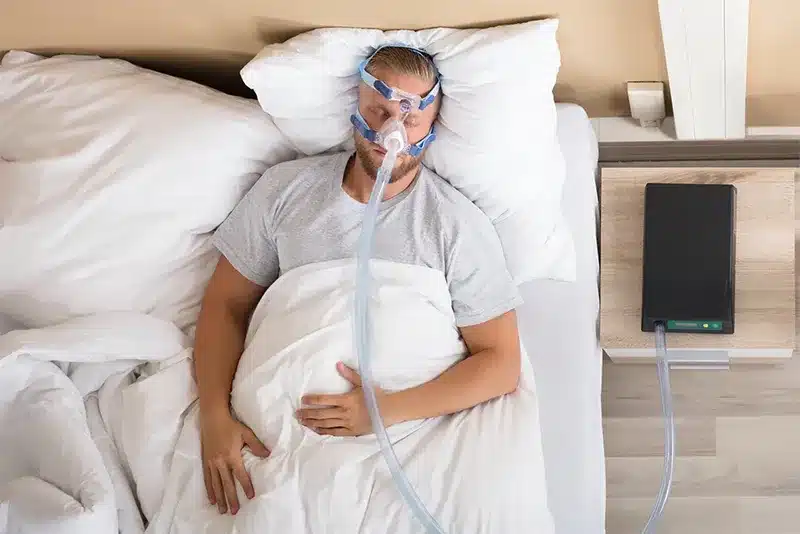Central Sleep Apnea
Central Sleep Apnea Doctor in Colorado
What is central sleep apnea?
Central sleep apnea is a disorder in which your brain does not send the appropriate signals to the muscles that control breathing. It differs from obstructive sleep apnea where breathing stops because the airway is blocked by relaxed throat muscles.
Central sleep apnea can result from other conditions such as heart failure, stroke and high altitude. It can also be caused by certain medications such as opioids.
Symptoms of central sleep apnea:
-
Observed pauses in breathing during sleep
-
Sudden awakenings with shortness of breath
-
Difficulty staying asleep, known as insomnia
-
Excessive daytime sleepiness, known as hypersomnia
-
Difficulty focusing
-
Mood changes
-
Morning headaches
-
Snoring. Although snoring suggests some degree of a blocked airway, it can also occur in people with central sleep apnea. It may not be as prominent in people with central sleep apnea as it is with obstructive sleep apnea.

How is sleep apnea diagnosed?
At home sleep testing is an excellent way to figure out if you have sleep apnea. With an at home study, you will be in the comfort of your own surroundings, which can result in a more accurate reading of how you actually slept. The device will be worn for one night of sleep and monitor your breathing, oxygen levels, and breathing effort. The data will then be sent wirelessly to Roaring Fork Sleep & Breathing Consultants for interpretation. You will receive test results and discuss the treatment options in as soon as 1 business day.
With central sleep apnea, an in laboratory sleep study (polysomnogram) may be indicated to better evaluate your breathing patterns. This will be discussed further with Dr. Rosenthal after completing sleep testing.
Treatments Offered:
Addressing associated medical problems:
Central sleep apnea can be caused by other disorders. Treating those conditions may help improve your sleep apnea. For example, better control of heart failure might help your central sleep apnea.
Reduction of opioid medications:
If opioid medications are causing your central sleep apnea, reduction of the dose over time may be indicated.
CPAP:
Continuous positive airway pressure (CPAP) is a method also used to treat obstructive sleep apnea and involves wearing a mask over the nose or nose and mouth while sleeping. The mask is attached to a device which blows a continuous amount of air to keep the upper airway open. CPAP may prevent the upper airway closure that is triggering the central sleep apnea.
ASV:
If CPAP is unable to effectively treat your condition, you might be given a device called adaptive servo-ventilation (ASV). Instead of delivering a continuous level of pressurized air, ASV adjusts the amount of pressure based upon breath by breath analysis. The device aims to smooth out your breathing pattern. The device might also provide you a breath automatically if you haven’t taken a breath within a certain number of seconds. ASV is not recommended in some patients with heart failure.
BPAP:
Bilevel positive airway pressure (BPAP) like ASV delivers a set amount of pressure when you breathe in and a different amount of pressure when you breathe out. It differs from ASV by providing a fixed amount of pressure rather than variable. You can also set the device to deliver a breath if you have not taken a breath within a number of seconds.
Supplemental oxygen:
Supplemental oxygen while sleeping can help in certain cases of central sleep apnea. Various devices are available to deliver oxygen to your lungs.
Medicines:
Certain medications such as acetazolamide have been used to stimulate breathing in people with central sleep apnea.
Phrenic nerve stimulator:
A newer therapy for central sleep apnea called Remede System delivers an impulse to the nerve that controls the diaphragm during sleep. This causes you to take a breath. The system includes a battery-powered generator that is implanted under the skin on the upper chest. It is used in moderate to severe central sleep apnea and is implanted at specialized centers.